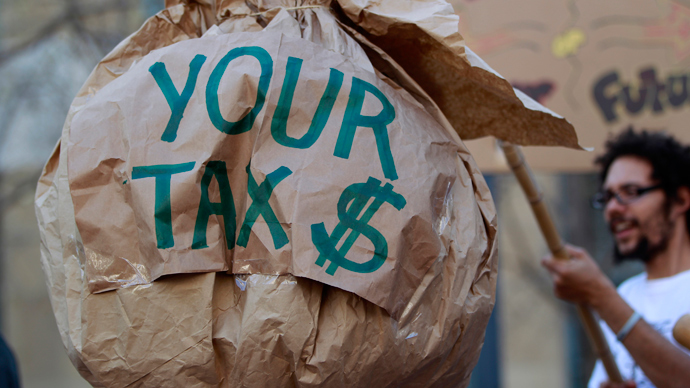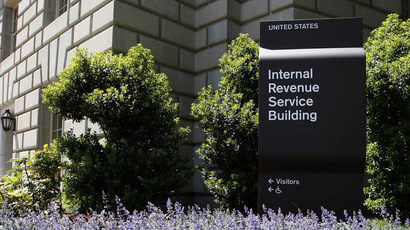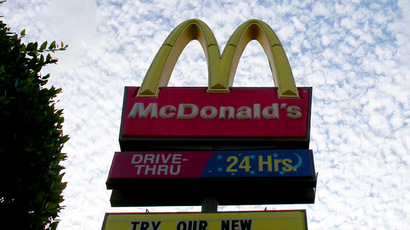Nearly 60 top corporations used loophole to avoid paying billions in US taxes

Verizon and News Corp. are among the dozens of companies listed on the Standard & Poor’s 500 that paid a zero percent tax rate in the last year. The so-called effective tax rate is how investors explain the tax a company pays compared to its profit.
While it is not illegal in any way for major companies to pay a zero percent tax rate - or in some cases even less - Friday’s analysis by USA Today does highlight some of the creative methods those corporations use to avoid dipping into their profit margins, and how that may ultimately impact national policy on corporate taxation.
The top federal income tax rate currently sits at 35 percent, a number that has been the source of public frustration for many company executives. Yet Seagate (a data storage manufacturer with a market value of $15.9 billion), Public Storage (the largest self-storage firm in the world with a $29.5 billion market value), and others pay a lower tax rate than most individual middle-class American families.
“Investors hope company management is doing everything they can do to generate profit, legally,” Nick Yee of Gradient Analytics told USA Today. “But the tax code is gray, and there’s often no set guidance.”
Other notable companies on the list include MetLife (worth $53.9 billion), Regeneron Pharmaceuticals ($29.6 billion), Ventas ($19.3 billion), and Agilent Technologies ($16.9 billion).
Transferring payments to offshore accounts is one of the most popular ways for companies to avoid heavy tax burdens. For example, a company could organize foreign subsidiaries that make raw materials in countries with low tax rates. Executives would then buy the material from a foreign supplier at a price far above cost, according to USA Today, thus keeping a large profit.
The effective income and payroll tax rate for an American family that earns an average $64,500 a year stands at 12.7 percent, according to payroll tax statistics released in 2012.
The current federal tax code that applies to the corporations in question even allows them to avoid paying taxes in years when they earn a profit.
Sending finances offshore has become so commonplace that US officials have sought to work with international leaders to close the loophole. Tax avoidance cost the US approximately $300 billion last year and although much of that sum comes from individuals, cracking down on corporations could prove difficult because transfers of this sort are completely legal.
This tax analysis comes just months after a congressional investigation found that Apple had set up a complicated web of subsidiaries to avoid paying any taxes. Lawmakers found that some of Apple’s subsidiaries listed zero employees and were effectively stateless entities run from the company’s offices in California.
“There is a technical term economists like to use for behavior like this,” Edward Kleinbard, a former staff director at the Congressional Joint Committee on Taxation, told the New York Times in May. “Unbelievable chutzpah.”














